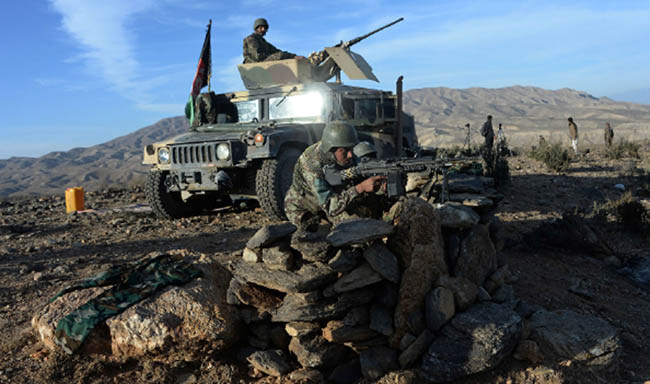The sense of disappointment will increase with escalated insurgency and message of pessimism. Breaking the peace deadlock and minimizing the casualties remain unanswered issues despite being debated hotly. Civilians suffer amidst violence since terrorist networks have intensified their operations in the region, mainly in Afghanistan. The bleeding never stops. Public air is filled with fear and hatred as the hackneyed words of “murder” and “destruction” make the daily headlines in national and international newspapers.
The US commander in Afghanistan Army General John Nicholson said in February that he needs several thousand more international troops to break a stalemate with the Taliban.
On the other hand, as the US President Donald Trump weighs sending more soldiers to Afghanistan, a top US intelligent officer has said that the security situation in Afghanistan will further deteriorate even if there is a modest increase in military support for the country. “The intelligence community assesses that the political and security situation in Afghanistan will almost certainly deteriorate through 2018, even with a modest increase in (the) military assistance by the United States and its partners,” Director of National Intelligence Dan Coats is cited as saying.
More than 220 US soldiers have been killed and over 20,000 were wounded within sixteen years of war in Afghanistan, but without a tangible result. In this stage, there are conflicting ideas about mitigating insurgency in Afghanistan. The security deteriorated as the military role of the US troops reduced to advisory role. Feeling this vacuum, US officials seek to resume the military role through sending more soldiers in Afghanistan. Despite this fact, there is still a sense of doubt if it breaks the deadlock.
I have written in my last commentary that warring factions hardly ever fight to cherish an ideology. For instance, a suicide bomber attacked an elite Afghan militia force and killed more than a dozen in eastern part of country on Saturday – the first day of Holy Month of Ramadan. The Taliban claimed responsibility for the attack. Similarly, the Taliban’s attack at an Afghan Army outpost on Friday reportedly killed and wounded 20 soldiers. The deadly attacks in the first day of holy month of Ramadan and on Afghan soldiers in a mosque in Mazar-e-Sharif last month reveal the fact that the Taliban are not fighting for ideology but out of barbarity.
A trend of heavy casualties among the Afghan security forces seems to be continuing this year, after record losses last year: more than 6,000 killed and more than 12,000 wounded in a largely defensive effort. The situation has alarmed the American-led NATO coalition, which has about 13,000 troops here to support and train the Afghan forces.
Gen. John W. Nicholson has requested an additional few thousand troops to help the mission. Not even the American surge of forces starting in 2009, involving more than 100,000 troops, was able to end the insurgency. Now, analysts believe the proposed troop increase would, at best, help prevent the Taliban from gaining further initiative and send the message that negotiation would be the only way out of the long war here.
Warring factions, mainly the Taliban, keep on killing combatants and noncombatants in the worst possible way. The peace process constantly met failure and there was no bona fide intention for peace since the Taliban did not cease their attacks. Their nonstop and indiscriminate killings are really heartbreaking for Afghan nation.
Streams of blood were shed and countless number of people were killed or wounded, however, the insurgency continues unabated. In other words, the large sacrifices vis-à-vis counterinsurgency seems to be futile. When our blood is spilt and people’s rights and freedoms are violated without fruition, peace will be a pyric victory for Afghan nation.
It is most likely that the last gleam of hope is also declining with escalated insurgency and high graph of casualties. The hot debates and conferences yet to find out a panacea for this chronic problem. Perhaps, there are two main reasons behind counterinsurgency failure. First, there is no concrete solution to this issue. All ways have been tried such as military deal and peace process, both came to a stalemate. The second reason is that political pundits might have suggested concrete solution but there is not strong determination to combat insurgency. On the one hand, political barriers will hamper the counterinsurgency, but on the other hand whistle blowers will dismantle the peace process. Therefore, both military deal and peace process have come to deadlock. There seems no other option except for these two, is there?
Now the US and Afghan forces seek to resume the military deal strongly, since there is no third option. I have always suggested strong military deal for counterinsurgency. Afghan officials will have to organize several offensive attacks, rather than defensive ones, to mitigate insurgency. More importantly, national unity among officials and their commitment to nation are the preliminary conditions for combating terrorism with strong will. Otherwise, the same trend will continue, don’t you think so?
Home » Opinion » Attack is the Best Means of Defense
Attack is the Best Means of Defense
| Hujjatullah Zia

